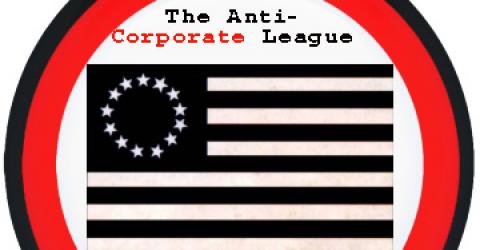PHRED DVORAK of the Wall Street Journal
Top executives at Double Eagle Petroleum Co. signed employment agreements this month that curtailed a time-honored executive perquisite: the executives don’t get severance in cases of “poor performance.”
Sigmund Balaban, a Double Eagle director, says the board wanted to make sure departing executives deserve the money they walk away with. He jokes that the new severance plan is a “golden parachute with a hole in it.”
Double Eagle’s contracts show one company’s attempt to solve a persistent compensation problem: rich severance packages for failed executives.
The issue flared anew last week, with news that Daniel Mudd and Richard Syron, the ousted chief executives of Fannie Mae and Freddie Mac, could be due as much as $24 million combined, after the government took over the companies. Several lawmakers, including U.S. presidential candidate Sen. Barack Obama, asked regulators to review or reduce the payments.
Other payouts last year were larger: $29.5 million for former Citigroup Inc. CEO Charles Prince, $161.5 million for former Merrill Lynch & Co. CEO Stan O’Neal and $210 million for former Home Depot Inc. CEO Robert Nardelli. Each was ousted or resigned under pressure.
Compensation experts say outsized exit packages remain a tricky problem, even as more pay is linked to performance. Severance pay is typically written into employment agreements crafted to attract top talent, they say.
“It’s all negotiated at a time when everyone is sure that nothing bad is going to happen — sort of like prenuptial agreements,” says Mark Borges, a principal at San Jose, Calif., consultancy Compensia Inc.
A 2007 study of 137 large companies by data-tracker Equilar Inc. found that 72% of the CEOs had severance agreements and 82% were promised exit packages if they lost their jobs following a corporate takeover, or “change in control.”
Also stoking criticism of severance pay: new rules requiring companies to disclose prospective payments. In Equilar’s study, the median CEO would receive $21 million for being ousted and $29 million following a change in control. Those figures included cash severance payments and the value of accelerated equity grants. They also included deferred compensation and retirement benefits, which many pay consultants argue are less severance than payment for past service.
Pension and deferred compensation accounts for $5 million of Mr. Mudd’s estimated $9.2 million in exit pay and $1.5 million of Mr. Syron’s $14.9 million. Messrs. Prince and O’Neal didn’t receive any cash severance: their awards consisted mainly of stock and options.
Severance packages typically include two to three times an executive’s annual salary and bonus, plus equity and perquisites ranging from lifetime health care to relocation payments, consultants say.
Some companies are trimming once-lavish plans. Pharmaceutical company Wyeth in 2006 amended its change-in-control provisions, effective next year, to drop some perks and exclude the value of stock grants in calculating severance.
The changes reduced to $18.3 million, from $38 million, the amount due CEO Bernard Poussot if he is fired following a takeover, according to Wyeth’s 2008 proxy. Wyeth attributed the changes in its proxy to “changed circumstances” of the company and the pharmaceutical industry.
Rimage Corp., a maker of high-tech gear, last year reduced its change-of-control severance to one year of salary and bonus, instead of two. Chief Financial Officer Rob Wolf says the change followed a survey that found most peers offering one-year payments.
Some companies are changing plans that calculated severance payments based on targeted bonuses, rather than the amounts earned, says Michael Sirkin, who heads the executive-compensation practice at law firm Proskauer Rose LLP. Others are abandoning the accelerated vesting of stocks for departing executives, or linking such vesting to performance.
Double Eagle, a Casper, Wyo., oil-and-gas exploration and development company, had advantages in crafting reformed severance policies. Many executives were new, and didn’t object to the board’s intent; their predecessors hadn’t had employment agreements.
Directors drafted severance agreements that granted up to three years of salary in some cases. But directors wanted to make sure shareholders wouldn’t be penalized if an executive failed, says Mr. Balaban.
The board hired a compensation consultant. Directors and executives had a “lively discussion” on how to define poor performance, recalls Kurtis Hooley, Double Eagle’s chief financial officer. Executives asked: “What if you don’t like me any more?”
The directors and executives agreed on performance goals, including financial targets like earnings per share and revenue growth as well as individual job objectives. Ultimately, executives trusted the board to be fair, says Mr. Hooley.
“If you’re going to provide me with security, I should provide some security back to the company that I’ll perform as promised,” says Mr. Hooley.
Editor’s Note: The Anti-Corporate League has long held that executive pay is a non-issue. It is interesting, however, that so many executives cut off low-paying jobs without offering a parachute. Yet these same people give themselves a nice one, even if they run their companies into the ground. Case in point is Merrill Lynch, whose former CEO landed with $161 million as he exited a company that is now in bankruptcy. Why corporations tolerate this from their impervious “leaders” is beyond us … the smartest guys in the room … who indeed are the smartest men in the room because they have their hands in the cookie jar while the corporate board is looking the other way. Corporations really do deserve better leadership, and so does the United States. Once corporations clean up their leadership culture, they will commit less abuses against their workers, communities and nations.
